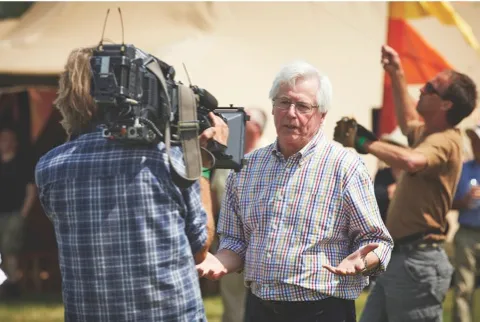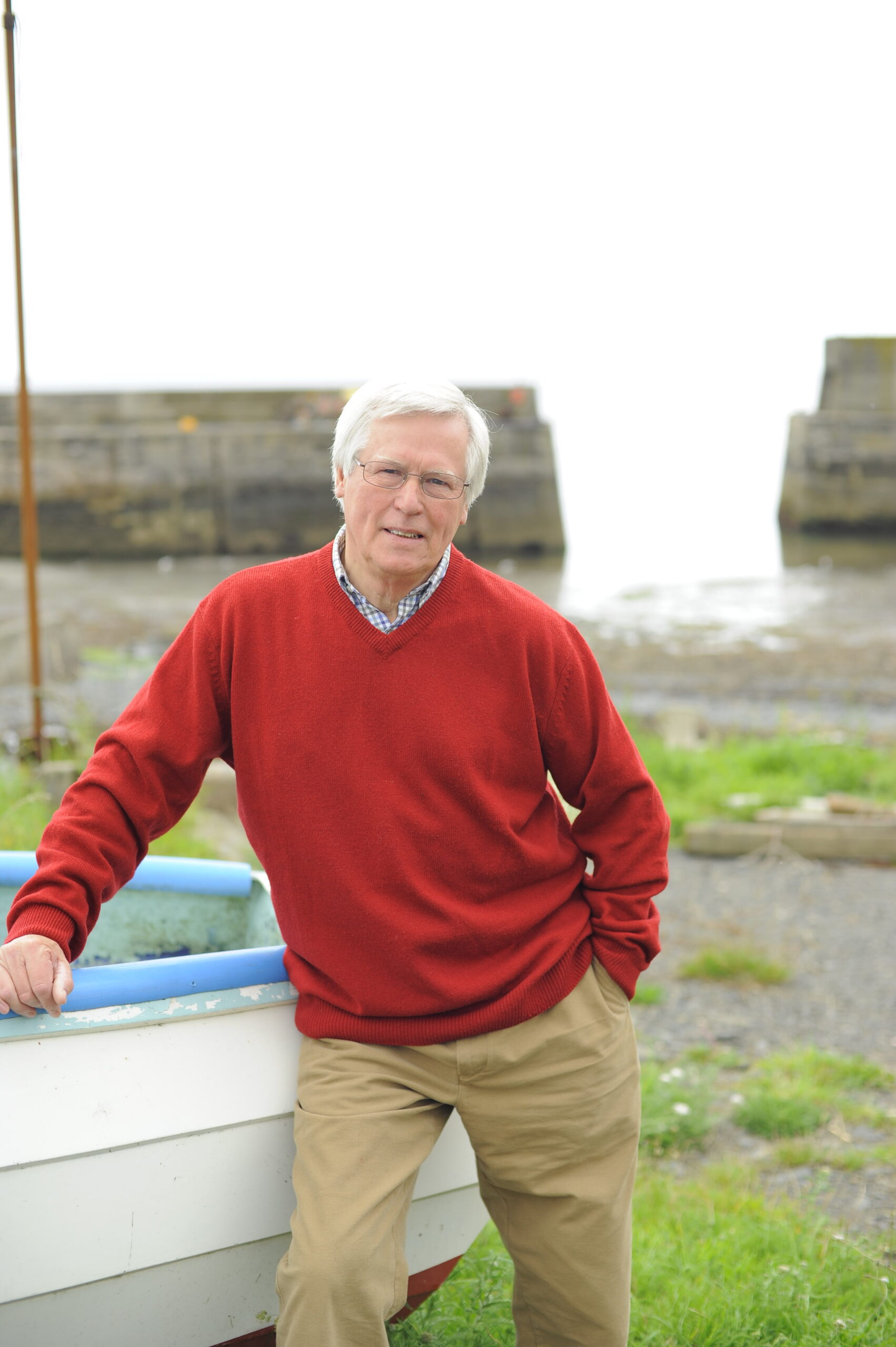
After hundreds of recorded episodes of Countryfile, John Craven looks back on the breaking stories, key issues and memorable people that have shaped his quarter century presenting 'welly telly'.
After 25 years I still can’t believe my luck – landing a job that almost every week has taken me to a different corner of the countryside to meet its people and pass on to millions of viewers the visual glories of its landscape and wildlife.
I’d already had one fantastic break, with Newsround, but when I left after more than 3,000 editions, I wanted to try something different. Luckily a new Sunday morning show focusing on rural issues was looking for a presenter, and I found myself swapping a cosy news studio for wide open spaces in all weathers.
Like Newsround, Countryfile was a pioneering programme and its success spawned ‘welly telly’ – the boom in all manner of out-of-town shows. Their popularity is, I’m sure, due to the deep-felt love that we Brits have for our rural heritage. Moving the show to Sunday evening was seen by some critics as a gamble but they simply underestimated that love affair. Countryfile is regularly the most watched factual programme of the week, sure proof of how much our nation cherishes its countryside. We have always tried to enlighten and entertain our urban audience without being condescending to rural viewers.
During my quarter century on the show, I’ve seen rural issues climb ever higher up the national agenda. Farm animal health has grabbed many headlines, from mad cow disease in the early days, through salmonella in eggs (who can forget Edwina Currie) to the constant threat of bovine TB and the new and growing worry of the Schmallenberg virus, which causes stillbirths and deformities in livestock. Most of all I remember the devastation of Foot and Mouth in 2001, when Countryfile reported live every week and I saw the heart-breaking effect on many farming families and smelt the terrible stench of those funeral pyres.
Going through the farm gate
Over the years, I’ve witnessed agricultural attitudes being forced to change as customers demanded more information about the source and safety of their purchases. When Countryfile began, farmers weren’t keen to talk to people like me about their problems and beliefs. But slowly they started opening their gates, metaphorically at least, so that outsiders could see what was going on. They had little to hide – British welfare standards are among the highest in the world and the rise of farmers markets and farm shops has done the industry a power of good in terms of public relations.
Living in the countryside isn’t all roses round the door, as I’ve seen when reporting on social issues such as the lack of affordable housing, dearth of jobs for young people, lack of public services, closure of pubs, schools and shops and welfare concerns for the ever-increasing elderly in remote areas. Then there was the journalistic challenge of even-handedly reporting the most divisive issue of all – the protracted build-up to the ban on hunting with dogs that brought 250,000 protesters from the green acres to the streets of London.
Lots of good things have happened on my watch, from the growth of rural tourism and conservation to the right to roam to (and Countryfile location crews can vouch for this) the great improvement in country pub food. What better job could I have than chronicling the life and times of the British countryside which is still, to me, the best and most beautiful place on earth.
What's been your favourite story presented by John? Share it in the comments below.

